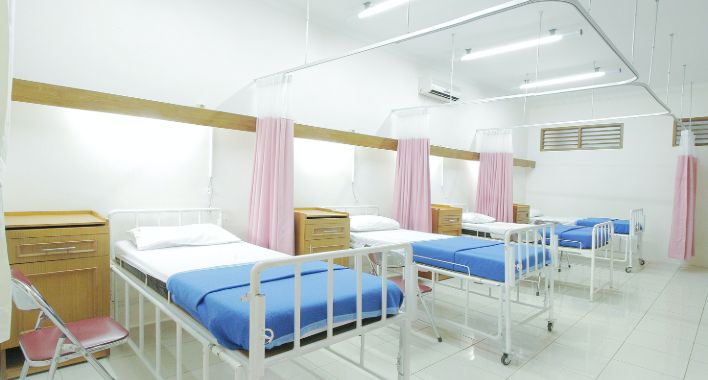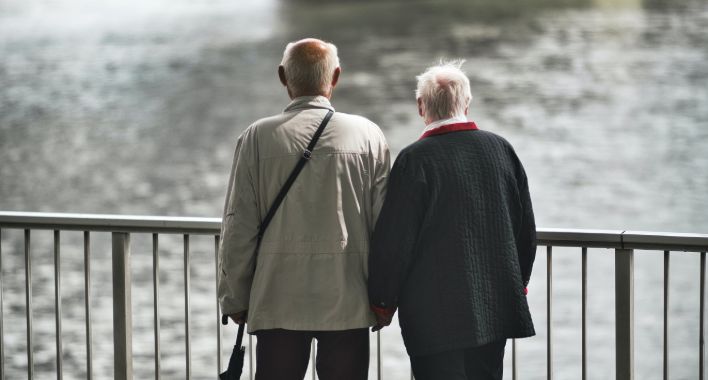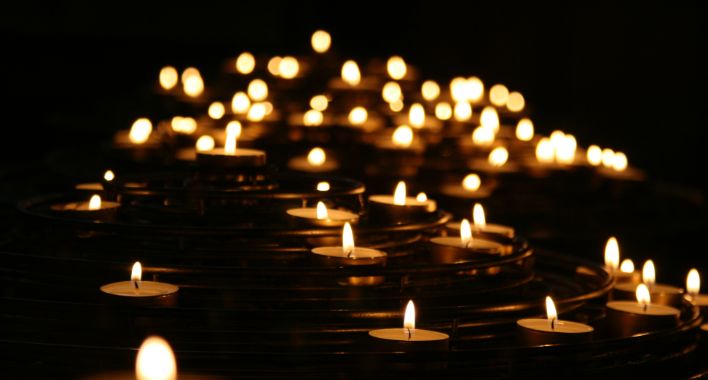The current health crisis has forced us to reorganize life in a hasty and more or less unexpected way. It is also forcing us to reorganize death. Unfortunately, this is not a metaphor; it is the reality that is being experienced right now, as you read these words, in hundreds of houses, health centers and old people’s homes throughout the world, which have become the scene of a battle between health and illness as cruel as we have not remembered in our country for a long time.
It is the reality of hundreds of hospital rooms, triage rooms, corridors, lonely apartments, in the big cities, in the forgotten towns. The very high capacity of COVID-19 to be transmitted from one person to another is causing hundreds of people, especially elderlies, to die after contracting it. It also prevents the people around them from being able, in many cases, to accompany them in this process and then to meet and say goodbye to them properly. Visits in the ICU are impossible these days. Wakes are being banned to prevent them from becoming a source of infection and funerals are being restricted to the minimum necessary for someone to take care of the deceased without involving anyone else.

It is traumatic, as a society, to think about the characteristics that old age (although not only), illness and death are acquiring these days. The inhuman distance that the virus forces, the dangerousness that emanates from a dying person, the isolation from their main reference figures, the atmosphere of deafening stress that now surrounds every inch of the hospitals.
What under normal circumstances would be a succession of normal griefs is now an accumulation of risky mourningWhat under normal circumstances would not be worth mentioning as it is simply the natural succession of more or less normal griefs -within the peculiarity that each loss implies- on this occasion is giving rise to an accumulation of risky mourning as we have not observed in our environment for decades.
The impact of knowing you are infected, the stress and anguish of getting medical attention, the generalised atmosphere of overload, the rush, the exhaustion, the impotence, the absence of company, the impossibility of saying goodbye, the inability to meet to share the experience and exchange support, the very discreet and distant burials… All these, and more that we can add, constitute risk factors for the complication of normal mourning that leave the mourner breathless for when they want to realise that they are facing the enormous challenge of integrating the death of someone significant. As psychologists, we believe it is necessary to clarify some aspects in this situation.
For the general population
1.In the coming weeks and months, the number of people requiring psychological assistance due to the various consequences of the current health emergency will increase significantly. This includes, of course, assistance with grief. This is an important challenge at the level of public health that deserves to be properly addressed.
2. Even in the current adverse circumstances, not all the people who need psychological care during their grieving process will be people with complicated grief. Many people will need and seek psychological help in the face of normal grief, and it will be a good thing if they do. All human beings have important psychological strengths to cope with our life challenges. Let us have confidence in our abilities and support each other.
3. Not all griefs with risk factors that begin in the next few days and weeks will result in complicated or pathological grief. Formal and informal support networks, including appropriate psychological care, will protect many people from suffering a serious mental health problem due to their grief.
4. A variety of resources, including specialized mourning counseling, can make complicated grief less complicated. Let’s keep hope alive.
For family and friends of the deceased
1. Perhaps you are now a person who has lost an important family member to COVID-19 in a nursing home, in a hospital, in a home, anywhere you could not go to provide the help you would have wanted or say goodbye as you would have needed. Your pain is totally understandable, you are probably feeling it in the form of anger, frustration, helplessness, guilt, anguish… There are no shortcuts right now to those emotions. However, when everything calms down, there are things you can do to try to turn everything that has been turned upside down inside you now. Believe it or not, trust these words.

2. If you have lost a loved one under the current circumstances, perhaps in a nursing home or probably in a hospital ICU, you are likely to be haunted by thoughts of whether your loved one suffered much before he or she died, said something, had someone by his or her side or died alone, thought about you or wondered where you were. These thoughts may fill you with anguish, but it’s completely normal to have them, and it’s important to give them space. Share them with people around you, in your own way, as far as you want, do not force yourself to live them alone for fear of scaring or disturbing others, keep them to yourself only if you feel in your heart that’s what you need.
You were not present and cannot know it, but think that around your loved one there was a team of professionals who took care of him/her and protected him/her to the end as best they could, and who gave him/her all the love they were capable of. Your loved one was cared for by people who accompanied him/her as much as possible. If your loved one was receiving intensive care, he was probably sedated, and in that case, it’s very unlikely that he or she would die in pain. It’s very painful to think that your loved one had a hard time at the time of death and nothing can save you from that discomfort now, but some people find comfort in the thought that, as much as their loved one’s suffering was in the final moments, it’s over, it’s behind them, and it’s not happening now.
Thinking that a family member died alone and suffering generates a lot of anguish. It is important to remember that many have been accompanied by professionals who have cared for them and given them affection and who have avoided much of their suffering3. The specialists in bereavement care, who are usually psychologists, are prepared to accompany you in the process you are starting these days. Grief is a complex path and includes experiences that are often new and disconcerting for those who are going through it. Perhaps this is the first time you have faced an important grief in your life. Don’t be in a hurry, it will be slow, but it will not last forever. Even if it doesn’t seem like it, no matter how bad you are now, you won’t always find yourself like this. Pay attention to your needs, seek support where you know you can receive it and allow yourself to feel everything that arises within you. These days you will hear advice, suggestions and various recipes here and there. Follow your intuition. Take what works for you, discard what has nothing to do with you. Your way of grieving is unique, and you have a right to it.

4. Remember that, when a relative dies, you are not the only person in the family who is grieving, but the whole family of the deceased is affected: partner, children, siblings, grandchildren… The person who dies is one but each one of those who are left has lost someone different and is going to deal with it in their own way, according to their own personality, their style of coping and, above all, according to the relationship they had with the person who has died. In situations like this, it is important that we respect the needs of those around us who are also grieving, that we respect their particular way of living this experience, which may not be very similar to our own. Perhaps confinement forces you to live more closely than you would like with the grief of others: give yourselves space, do not pressure yourselves to be silent or to share, surely little by little your different styles of coping with loss will find their own harmony.
5. If because of the confinement you have not been able to attend the farewell ritual you would have liked, you can do your own farewell ritual at home, by yourself or with those people who live together or even by connecting in a collective video call. This will require some creativity but will give you the opportunity to shape the thoughts and emotions you are experiencing privately. Don’t complicate it, it can be a very simple act, through a song, a few words, a few minutes of silence in front of a candle. Find your own way. Very important: feel free not to do any of this or not to need it, because it is perfectly valid.

6. On TV and radio you will often hear about the farewell letters for those who have died. It is a very useful exercise for some people, but it is likely that if the death is very recent, you feel that it is not your time, that you do not know what to say or that you do not want to do it. It’s okay, it’s not your fault: it’s the exercise’s fault. If writing, or doing any other farewell ritual, is a valid technique for you, you will realize it and you will do it spontaneously when you feel it is time. Maybe now you need to express your pain, your need not to say goodbye to the person yet, the rage you feel at everything that is happening, how bad it feels not to have had the chance to be closer. Let yourself feel it and express it, there will be time to let go and give thanks.
Remember that now we see it in the distance, but this situation will pass and life will bring you new challenges, as it has always done so far. Now it is time to experience this and all together we are living it in the best way we can. Remember that the streets are empty, but the houses are full of people. Take the opportunity to connect with the outside world as much as you can and don’t hesitate to seek the help you need, including psychological help. You can count on us.


